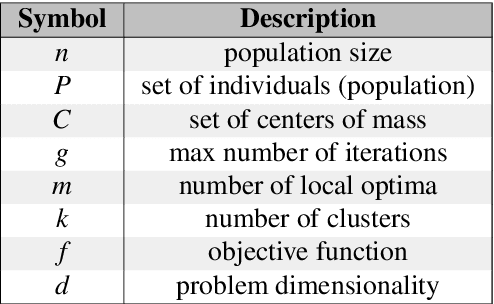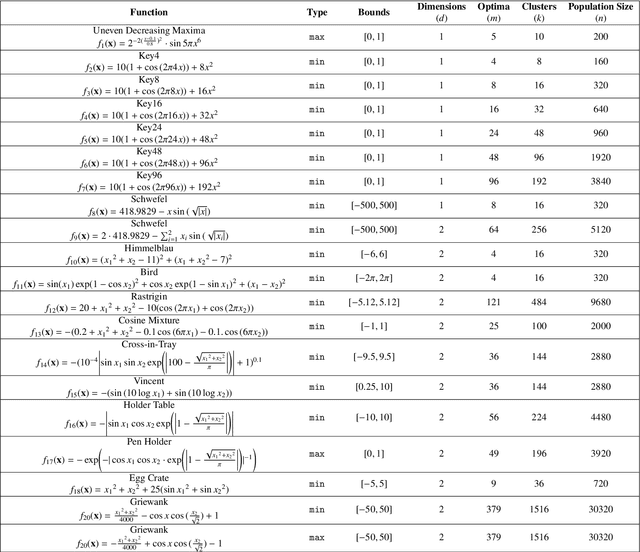Kuzey Arar
Multi-Modal Optimization with k-Cluster Big Bang-Big Crunch Algorithm
Dec 21, 2023



Abstract:Multi-modal optimization is often encountered in engineering problems, especially when different and alternative solutions are sought. Evolutionary algorithms can efficiently tackle multi-modal optimization thanks to their features such as the concept of population, exploration/exploitation, and being suitable for parallel computation. This paper introduces a multi-modal optimization version of the Big Bang-Big Crunch algorithm based on clustering, namely, k-BBBC. This algorithm guarantees a complete convergence of the entire population, retrieving on average the 99\% of local optima for a specific problem. Additionally, we introduce two post-processing methods to (i) identify the local optima in a set of retrieved solutions (i.e., a population), and (ii) quantify the number of correctly retrieved optima against the expected ones (i.e., success rate). Our results show that k-BBBC performs well even with problems having a large number of optima (tested on 379 optima) and high dimensionality (tested on 32 decision variables). When compared to other multi-modal optimization methods, it outperforms them in terms of accuracy (in both search and objective space) and success rate (number of correctly retrieved optima) -- especially when elitism is applied. Lastly, we validated our proposed post-processing methods by comparing their success rate to the actual one. Results suggest that these methods can be used to evaluate the performance of a multi-modal optimization algorithm by correctly identifying optima and providing an indication of success -- without the need to know where the optima are located in the search space.
 Add to Chrome
Add to Chrome Add to Firefox
Add to Firefox Add to Edge
Add to Edge